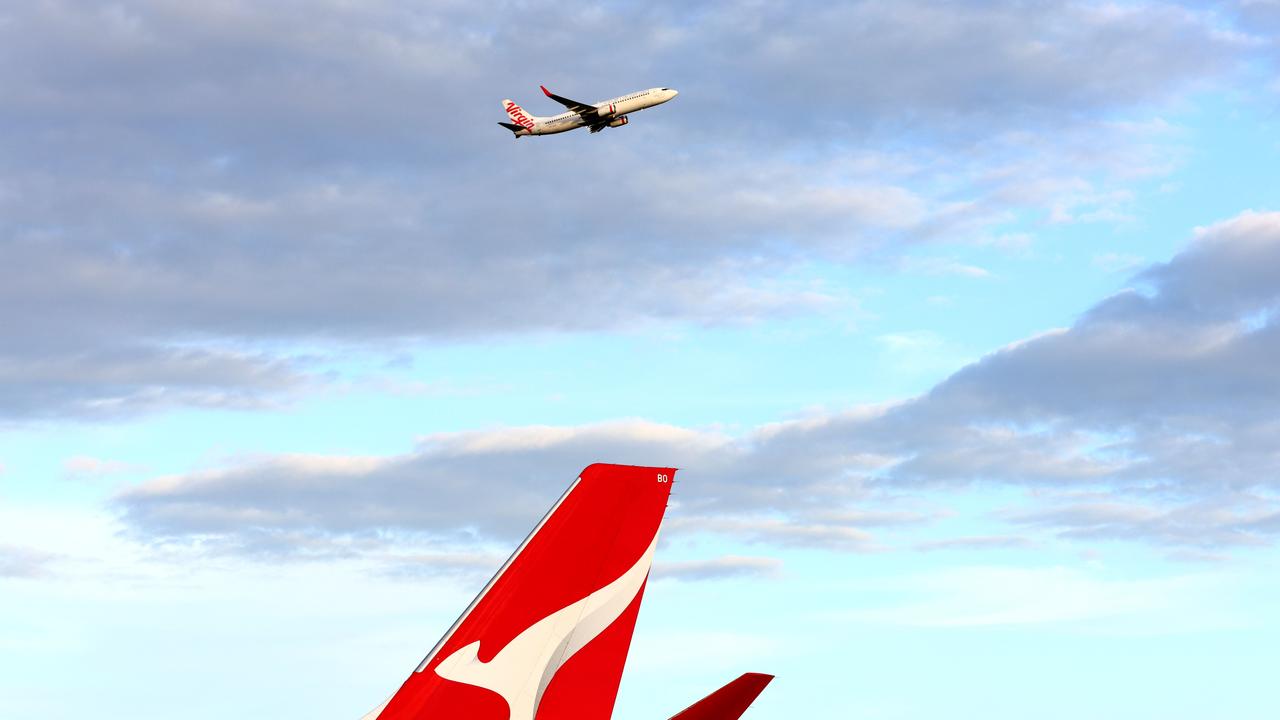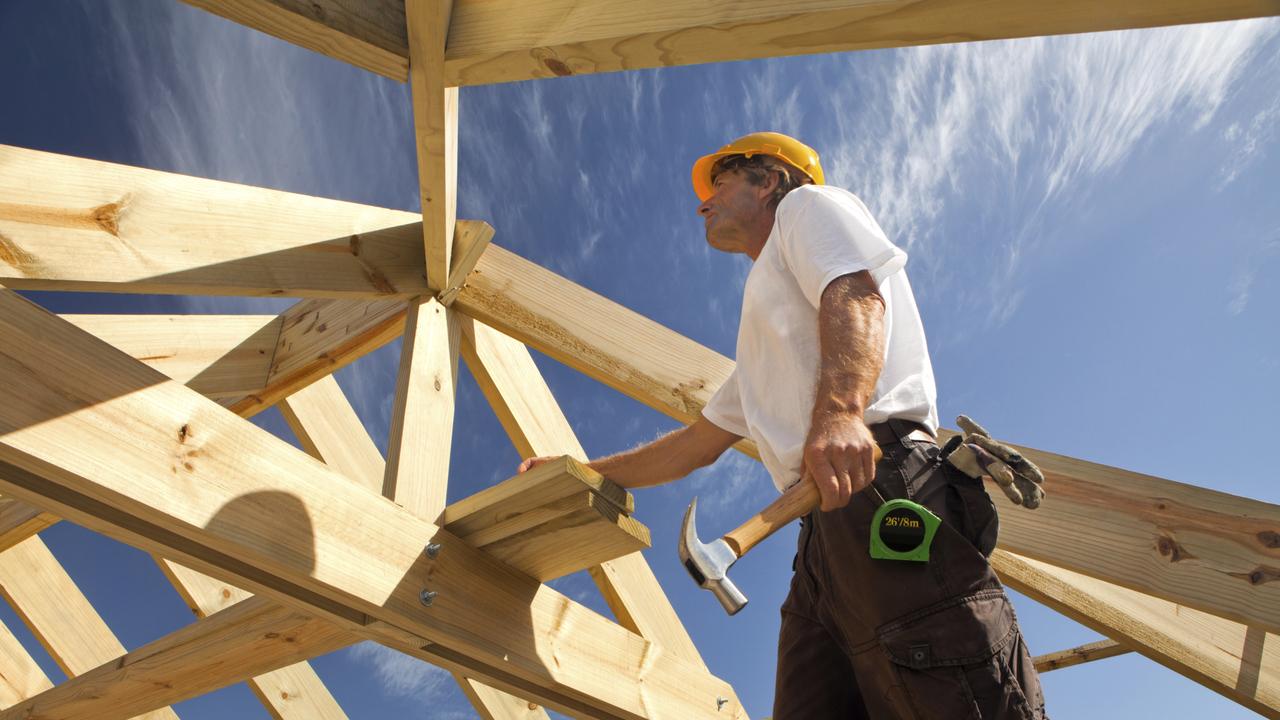Brisbane Chinese restaurants face ruin as retailers call for a tax ‘holiday’
Restaurant owners at Sunnybank and Fortitude Valley say they face losing their businesses as they struggle to pay wages and are forced to lay off staff or slash hours with some reporting a staggering 50 per cent drop in recent weeks.

QLD News
Don't miss out on the headlines from QLD News. Followed categories will be added to My News.
- Life in Shanghai: People are scared, sad, and angry
- Voyage of the damned: Life inside the quarantined cruise
QUEENSLAND diners are being reassured that there is no threat of catching coronavirus at their local Chinese restaurant as struggling precincts report plummeting numbers and fearful customers coming in armed with hand sanitiser.
Some restaurant owners in Sunnybank and Fortitude Valley say they face losing their businesses as they struggle to pay wages and are forced to lay off staff or slash hours.

National Retailers Association CEO Dominique Lamb said “consumers should have no concerns” about eating out or shopping at retailers in or near suburbs with high densities of Asian Australians, such as Sunnybank in Brisbane.
She said they had been most exposed to the “coronavirus effect”, driving shopper numbers down 60 per cent.
“There is really no risk of people contracting anything,” she said.
The peak body for 28,000 retail and fast food outlets yesterday released a “Blueprint for Retail Recovery” calling for help from different levels of government, including a 12-month payroll tax “holiday” and an exemption to increases in the national minimum wage for businesses affected by bushfires and coronavirus.
Nick Chung of Super Bowl Chinese restaurant in Fortitude Valley said a lack of business during the Chinese New Year period meant they had to cut down staff hours.
“I have to presume people get scared to go out because they don’t want to get the coronavirus, but I don’t think this virus should stop you from living your life – don’t let it destroy your lifestyle,” he said. “A lot of restaurants have had to lay off staff and some restaurants have even had to close for periods of time to keep expenses down to get through this hard time.”
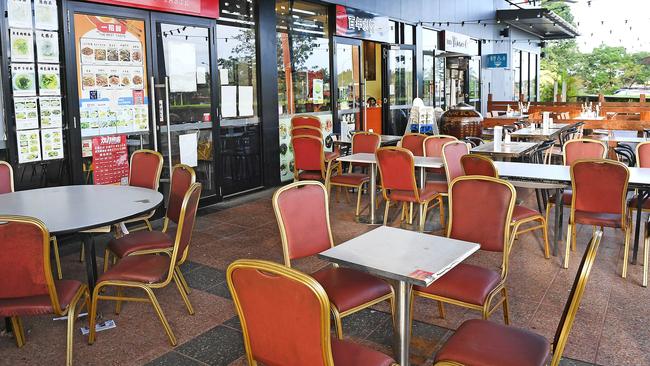
Fortune Well Restaurant manager Becky Xie said the Sunnybank business had gone from being packed to hosting just two tables on a Saturday night. She said they were struggling to pay wages and at serious risk of losing their business.
“Local people here need to support the local community,” she said. Another Sunnybank restaurant owner – who did not want to be named – said he had experienced up to a 50 per cent drop in business recently.
“They’ve all been mainly takeaway as well, they don’t want to stay around too long,” he said. “They even come in with mini hand sanitiser.”
Ms Lamb said all three levels of government had an obligation to counter the infection fears that were causing people to stay home.
While the exact impact will only be known with the release of March quarter figures, she said some shopping centres were “the quietest people have ever seen them”.
Australia China Business Council national CEO Helen Sawczak said the economic impact from the coronavirus would be “profound”.
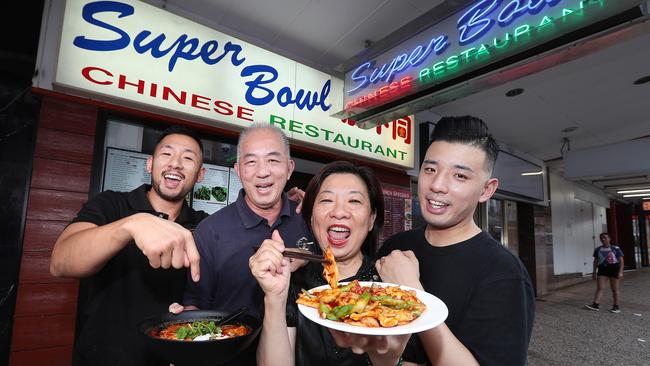
Affected businesses were dealing with both staff and goods being in limbo, and in some cases trying to seek alternative markets, she said.
“The biggest thing now is the free flow of people. People are stranded between countries,” she said.
“Logistics are at a standstill; there is a quagmire of exports waiting to be distributed at ports.”
Despite the 2003 SARS virus having a higher fatality rate than coronavirus – some 9 per cent of people who contracted SARS died from it, compared to a little over 2 per cent for coronavirus – Ms Sawczak said the economic environment surrounding the two viruses were vastly different.
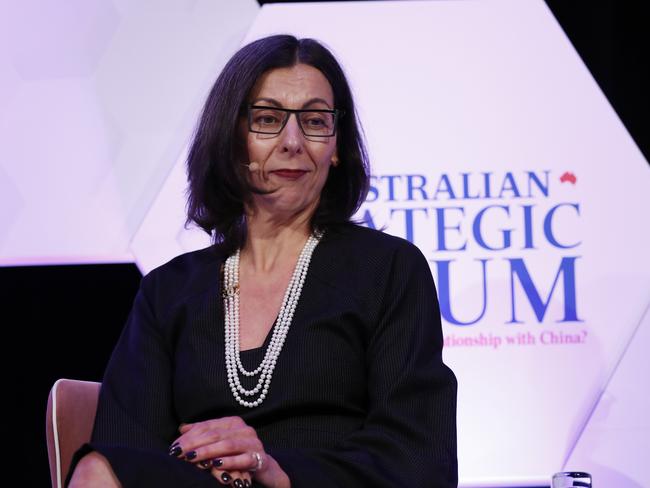
“China is much more integrated into the global economy than it was in 2003,” she said. “This will hit us harder.”
Nevertheless, businesses are looking to the SARS experience with some hope, she added.
“The experience of SARS in 2003 was that the warmer weather in the northern hemisphere basically stopped the virus, so we are hoping coronavirus may be curtailed in a few weeks time.”

